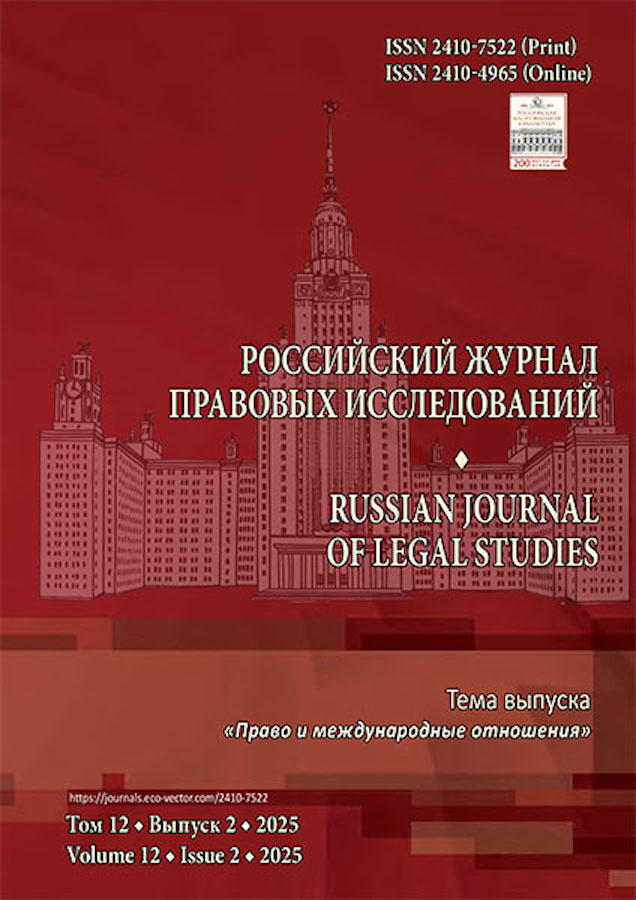Termination of Alimony Obligation by Set-off Agreement
- Authors: Ignatyev A.A.1
-
Affiliations:
- Voronezh State University
- Issue: Vol 12, No 2 (2025)
- Pages: 93-98
- Section: Private law
- Submitted: 28.05.2025
- Accepted: 05.06.2025
- Published: 18.07.2025
- URL: https://journals.eco-vector.com/2410-7522/article/view/680856
- DOI: https://doi.org/10.17816/RJLS680856
- EDN: https://elibrary.ru/MZDYOQ
- ID: 680856
Cite item
Abstract
In addition to set-off, a legal structure similar in purpose but different in terms of implementation is widely used in legal practice – a set-off agreement. At the same time, the question of applicability to it of the relevant restrictions inherent in set-offing in accordance with Article 410 of the Civil Code of the Russian Federation remains debatable. This is due to the fact that conditional restrictions on the set-offing capacity of claims can be differentiated into two large groups: 1) prohibitions and restrictions motivated by the unilateral nature of set-offing (Article 410 of the Civil Code of the Russian Federation) and clearly not relevant to the set-off agreement due to its contractual nature; 2) prohibitions and restrictions that do not contain a single logic in themselves (Article 411 of the Civil Code of the Russian Federation and other regulatory acts). In the second case, it becomes necessary to assess the applicability of each of the restrictions separately to the set-off agreement. The article analyzes the possibility of overcoming the ban on the alimony set-off with the help of an set-off agreement. The author concludes that the agreement on the set-off of alimony is possible only as a special case of termination of the alimony obligation and only in part of the resulting debt. The form of this agreement can theoretically be simple written and, more preferably, notarial. However, in the absence of a direct indication in the law of the possibility of concluding such agreements in simple written or notarial form, today it is necessary to go to court for their approval as amicable agreements.
Keywords
Full Text
About the authors
Alexandr A. Ignatyev
Voronezh State University
Author for correspondence.
Email: alexandrwolkrus@gmail.com
SPIN-code: 6899-2532
Russian Federation, Voronezh
References
- Gorbacheva MV. Cases of inadmissibility of contractual offset. Siberian Law Herald. 2009;(1):50–55. EDN: JXKXIL
- Fahretdinov TR. Problems of application of offset in civil law of Russia [dissertation]. Samara; 2003. 183 p. (In Russ.)
- Sergeev AP, Tereshchenko TA. Decree of the plenum of the Supreme Court of the Russian Federation no. 6 on the termination of obligations: commentary on certain clarifications arbitrazhnye spory. 2020;(4):119–150. EDN: JLRSQC
- Aminov ER. Innovation of alimony obligations. Semejnoe i zhilishchnoe pravo. 2010;(2):3–7. (In Russ.)
- Karapetov AG, editor. Performance and termination of an obligation: commentary to Articles 307-328 and 407-419 of the Civil Code of the Russian Federation. Moscow: M-Logos; 2022. 1494 p. (In Russ.)
- Petrova ND. History of alimony obligations in the soviet period: problems of theory and practice. Problemy nauki. 2020;(3):24–26. (In Russ.) EDN: LMSBPL
- Burdo EP. Concept and legal nature of alimentary obligations. Business in Law. 2014;(3):8–11. EDN: SGSAHP
Supplementary files








